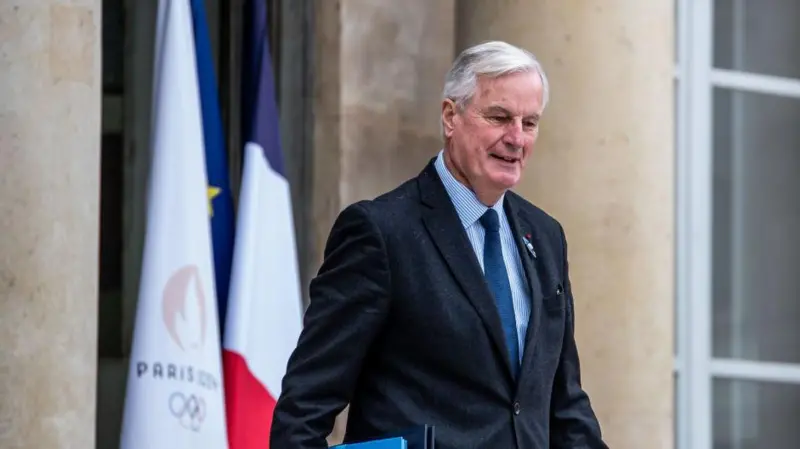
French Prime Minister Michel Barnier is expected to tender his resignation today, following his government’s ousting in a no-confidence vote. This marks the first time in over 60 years that a French government has been removed by parliament.
The vote, held late Wednesday, saw 331 MPs back the motion, surpassing the required 288 votes. The outcome forces Barnier, who was appointed by President Emmanuel Macron just three months ago, to step down. His resignation also nullifies the controversial budget proposal that triggered the political crisis.
Barnier is likely to remain as caretaker prime minister while Macron searches for a successor, a process that could take weeks. Macron, recently returned from a state visit to Saudi Arabia, is scheduled to address the nation on Thursday evening.
The far-right National Rally (RN) led by Marine Le Pen and the left-wing New Popular Front (NFP) joined forces to reject Barnier’s government. Their anger was fueled by Barnier’s use of special powers to bypass parliament and push through a budget featuring €60 billion in deficit reduction.
Marine Le Pen criticized the budget as “toxic for the French” and said opposition MPs had “no other dignified solution” than to vote down Barnier’s government.
In response to the vote, Barnier defended his actions before the National Assembly, stating, “We have reached a moment of truth, of responsibility. It is not a pleasure that I propose difficult measures, but they are necessary to address the realities of our debt.”
Despite her role in the government’s collapse, Le Pen clarified in an interview with TF1, “I am not asking for the resignation of Emmanuel Macron.” However, her party allies have expressed hope of pressuring Macron to step down.
Macron’s presidency remains constitutionally intact despite Barnier’s resignation. However, the political deadlock in the National Assembly persists, with no group holding a majority to govern effectively.
RN adviser Philippe Olivier described Macron as a “fallen republican monarch,” signaling the growing pressure on the president to resolve the crisis. However, Macron has dismissed the possibility of early presidential elections.
With parliamentary elections off the table until July, the standoff is set to continue, leaving Macron’s administration navigating a fraught political landscape.








